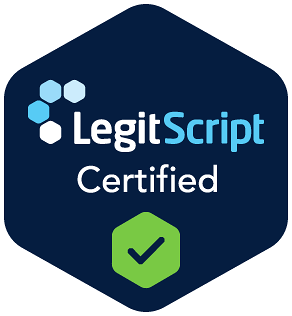By Christopher Rusk, LSW, LCADC, Manager, The Recovery and Wellness Unit, Valley Health System

Valley’s Recovery and Wellness Unit in Ridgewood provides compassionate inpatient withdrawal management services within a soothing setting for adults seeking successful recovery from substance use disorders. Here, the unit’s manager discusses the importance and benefits of medically supervised withdrawal management.
Q. Please define withdrawal management.
A. Withdrawal management is the process of effectively helping individuals manage the physical and psychological symptoms that occur when they stop using or reduce their intake of drugs, alcohol, or prescription medications. Referred to in the past as detoxification or “detox,” the process is a necessary first step toward recovery from substance use disorders or addiction.
Q. What are the benefits of coming to Valley for this treatment?
A. In our specialized Recovery and Wellness Unit, individuals benefit from 24/7 monitoring by a dedicated clinical team, including certified addiction specialists, physicians, nurses, social workers, and therapists. Evidence-based, medically supervised inpatient withdrawal services can significantly improve outcomes compared to attempting withdrawal at home. Continuous oversight by our team enhances patient safety, addresses complications promptly, and supports a more successful recovery.
Because our unit is located within Valley Health System, patients have ready access to other medical specialists if needed, such as physical and occupational therapists, cardiologists, pulmonologists, other physicians for consultation, and nurses who specialize in wound care. Individuals can be admitted to the unit at any time, 24 hours a day, through our Emergency Department.
Q. Can you describe why a comprehensive withdrawal approach is best?
A. As a person adjusts to a new normal, their body may experience withdrawal symptoms that can include digestive issues, trembling, fatigue, sleep disorders, headaches, and intense cravings. Our dedicated staff monitors and supports each patient with a personalized plan, which might include medication-assisted treatment with FDA-approved therapies for opioid, alcohol, or other substance withdrawal. Individual and group counseling are important, as are therapies that are beneficial to the whole person: mind, body, and spirit. These include mindfulness, essential oils, and massage.
Q. How long does withdrawal management last?
A. The treatment duration varies from person to person, typically lasting five to seven days. Our team works with each individual to ensure they are medically stable and no longer at risk for acute withdrawal symptoms. Before discharge, our team collaborates with each person to create a detailed aftercare plan that will help them to effectively continue their recovery journey.
For more information, call 201-612-4949.
If you are in crisis, text or call 988. You can access a national helpline (1-800-662-4357) and learn more at samhsa.gov/find-help/national-helpline.


